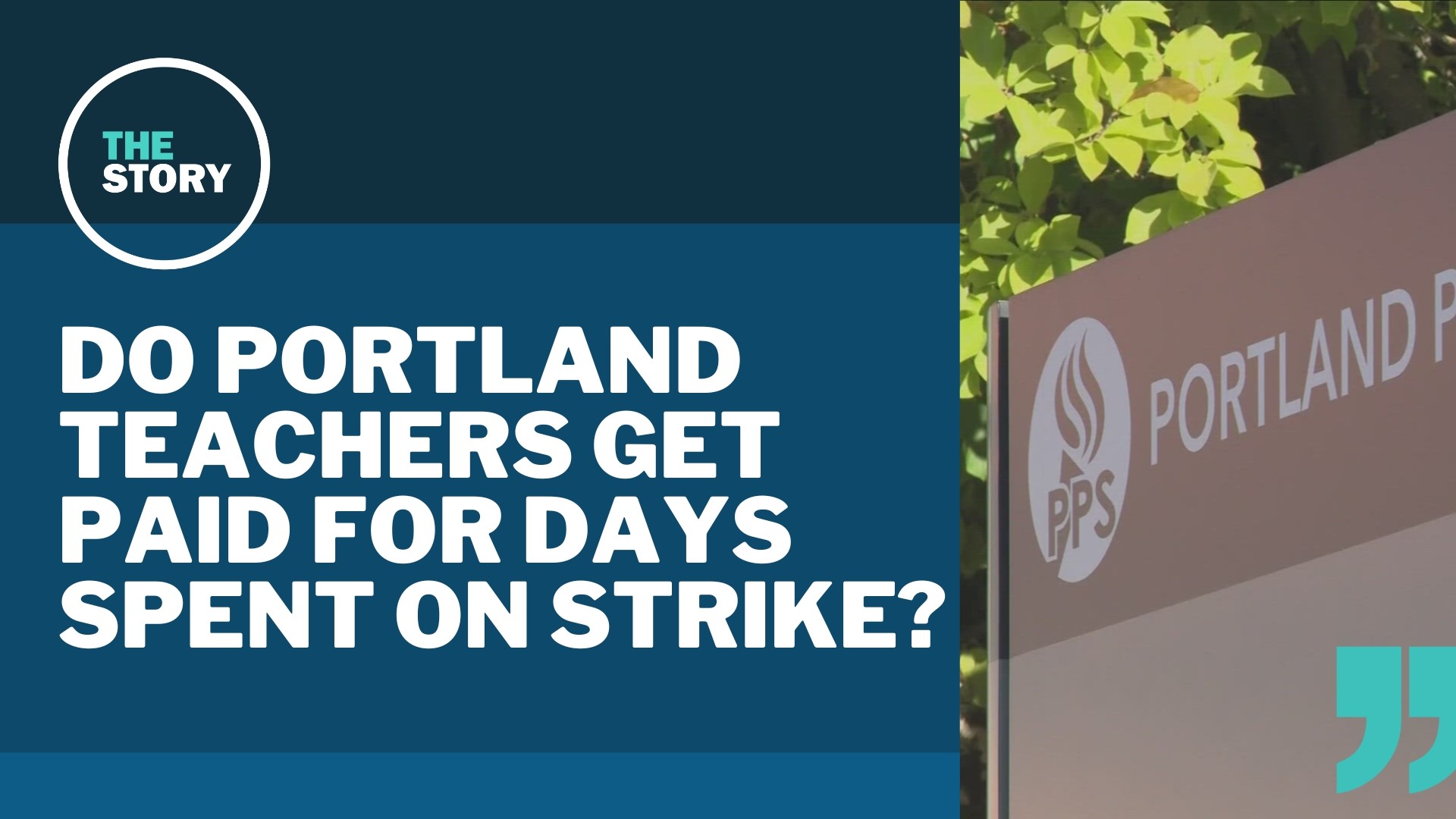PORTLAND, Ore. — Portland Public Schools is days away from what would be its first-ever teacher strike, with roughly 4,000 educators set to walk off the job on Nov. 1 if a new contract agreement hasn't been reached. The district and the Portland Association of Teachers will continue to hold mediation sessions Monday and Tuesday to try to work out a last-minute deal, but the union's president said over the weekend that the chance of a strike are "pretty high."
Earlier this month, a viewer emailed KGW asserting that the district should halt all educator pay as soon as the strike begins. That's one person's opinion, but it raises an important question: Can the district do that? Most teachers receive a set annual salary rather than hourly pay, so does that make the district obligated to keep paying them during a strike?
THE QUESTION
Is Portland Public Schools required to keep paying teachers during a strike?
THE SOURCES
THE ANSWER
No, Portland Public Schools is not required to pay teachers for days spent on strike, and the district says it doesn't plan to do so if the upcoming potential strike actually happens. However, the district did note that backpay could end up becoming one of the negotiated elements of a deal to end the strike.
WHAT WE FOUND
Teacher salary schedules
Fully answering the question requires some background on how teachers are paid in Portland Public Schools. Most are not hourly employees — they're paid a set annual salary that they can choose to receive in either 10 or 12 installments, according to the 2022-2023 collective bargaining agreement between the union and the district. The contract includes a salary schedule based on factors like education level and seniority.
There are additional stipends and other circumstances where PPS teachers can earn supplemental income, but generally speaking, they get paid once per month — usually on the last working day of the month — and they receive the same base salary amount each time.
That's a fairly common payroll approach in American school systems. The advantage is that it smooths out the uneven work schedule of the school year into a consistent series of paychecks, avoiding large gaps such as the summer break, but it comes with downsides.
Teachers are exempt from federal regulations for wage and salary protections, making them ineligible for overtime pay. The National Education Association argued in an article last year that those exemptions were intended for people like lawyers and doctors, who typically receive higher salaries than teachers, and that the discrepancy is contributing to teacher shortages.
No pay for strike days
The monthly salary structure means teacher pay is somewhat disconnected from the actual hours worked during each pay period — but they do have to show up to work in order to get paid. According to the 2022-2023 contract, the teachers have the right to strike during renewal negotiations, but PPS is not required to pay teachers during a strike.
District officials said educators have been told that they will not receive any salary, stipends or other compensation for the strike period, although the officials noted that backpay could end up being negotiated as an element of an eventual settlement to end the strike.
The timing of the potential strike gives teachers some breathing room; it would start one day after they get paid on Oct. 31, and their next pay day would be a full month away. So, hypothetically, if they resolved the strike within that month and the district agreed to a backpay concession as part of the deal, the Nov. 30 paychecks would be unaffected.
But if the strike ran longer — or the settlement didn't include backpay — things would be different. Each paycheck covers a work period from the 15th of the preceding month to the 15th of the current month, according to the district, so the Nov. 30 paycheck is for Oct. 15 to Nov. 15. Teachers would still receive their paychecks on Nov. 30 because they worked the final two weeks in October, but the paycheck wouldn't include pay for any strike days during the first two weeks of November.
The pay issue also came up last month in Southwest Washington when educators with the Evergreen School District went on strike, although the district took a different approach. The district said it wouldn't permanently dock any pay for the strike — reasoning that strike days need to be made up just like snow days, so the teachers would ultimately work the same number of days over the course of the school year — but it would delay sending out any paychecks until the strike ended.
Insurance impact
The PPS strike also has the potential to impact insurance coverage for educators in December, according to the district officials, because each month's coverage depends on a teacher working for at least half of the preceding pay period.
An FAQ on the union's website agrees, stating that the district would be unable to interfere with November insurance coverage, but that it could withhold insurance premium payments for days the employees don't work, impacting later coverage if the strike goes on long enough.
The district officials said that issue could also become a bargaining term, and the union FAQ states that PAT would use its hardship fund to help its members if the district began withholding insurance payments.

